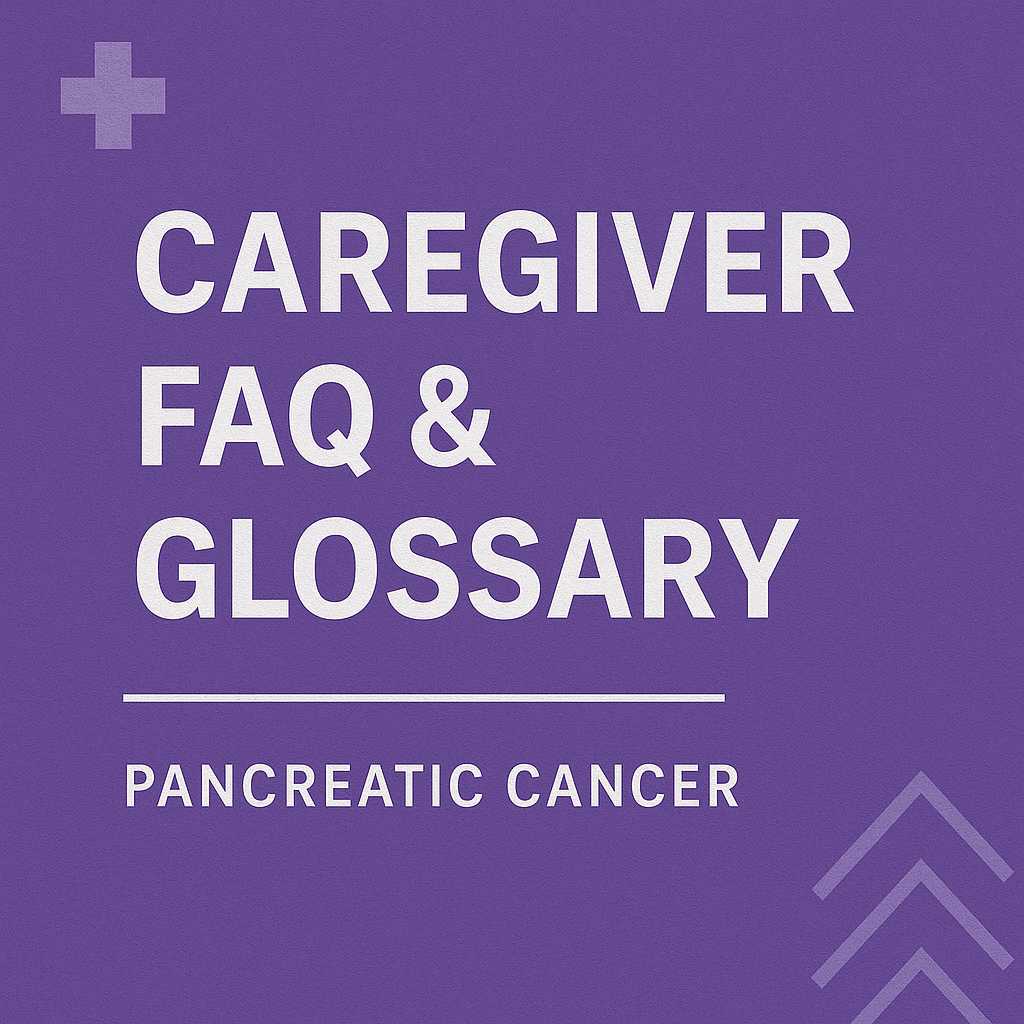Quick answers and definitions for caregivers and families.
Caregivers of pancreatic cancer patients face many questions—from daily responsibilities to complex medical terms. This resource provides quick answers to common questions and a glossary of important terms, so you can feel confident navigating the journey. At Sky Foundation, we know how overwhelming this can feel, and we’re here to make sure you don’t have to figure it out alone.
Frequently Asked Questions
Q: How do I know when to ask for help?
A: If you’re feeling physically exhausted, emotionally overwhelmed, or unable to manage daily responsibilities, it’s time to reach out. Ask friends or family to cover tasks, or explore respite care through hospice or home health services.
Q: What should I bring to medical appointments?
A: A notebook, medication list, insurance information, and prepared questions. Having a caregiver present helps patients remember details and feel supported.
Q: How do I talk to children about pancreatic cancer?
A: Be honest but age-appropriate. Use clear language, encourage questions, and reassure them that their feelings are normal.
Q: What if I feel guilty taking breaks?
A: Rest is necessary. Taking care of yourself allows you to provide better care for your loved one. Self-care is not selfish—it’s essential.
Q: Where can I find financial assistance?
A: Ask your hospital’s financial counselor, or explore national programs like the Patient Advocate Foundation and Cancer Financial Assistance Coalition.
Q: How do I connect with other caregivers?
A: Join Sky Foundation’s caregiver committees or online platforms like Cancer Support Community or CaringBridge.
Glossary of Key Terms
- Advance Directive: A legal document outlining a patient’s healthcare wishes if they cannot speak for themselves.
- Care Coordination: The organization of medical care across providers and facilities.
- Clinical Trial: A research study that tests new treatments for safety and effectiveness.
- Hospice Care: Comfort-focused care for patients with a life expectancy of six months or less.
- Palliative Care: Care designed to relieve symptoms and improve quality of life, provided at any stage of illness.
- Respite Care: Temporary relief for caregivers through short-term professional support.
- Survivorship: The phase of care that begins after active treatment ends.
Building Confidence With Resources
Understanding caregiving terms and knowing where to turn for answers helps reduce stress and uncertainty. Sky Foundation’s survivor-led communities are filled with people who can explain these terms in plain language and share what they mean in real-life caregiving situations.
Legacy of Care
Every question you ask and every term you learn makes you a stronger advocate for your loved one. Sky Foundation’s Planned Giving options allows you to turn that advocacy into long-term impact by including Sky in your will or estate plan.
Key Takeaway
Caregiving is filled with questions, and no one should feel lost or alone. By learning common terms, asking for help, and connecting with supportive communities, you can feel more confident and prepared. Sky Foundation is here with survivor-led insight, caregiver committees, and Legacy Giving opportunities to ensure your role as a caregiver creates a lasting impact.

